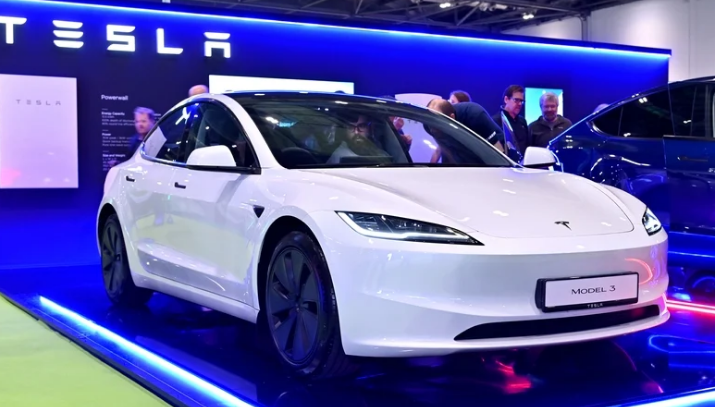Tesla’s sales in Europe dropped sharply in April, falling 49% compared to the same month last year, even as battery-electric vehicle (BEV) sales across the region rose nearly 28%, according to data from the European Automobile Manufacturers Association (ACEA). The sharp decline underscores Tesla’s waning popularity in Europe despite upgrades to its Model Y, as mounting competition and other challenges weigh heavily on the US electric vehicle (EV) maker.
Overall car sales in the European Union, Britain, and the European Free Trade Association (EFTA) remained stable, with a marginal 0.3% decrease from April 2024. Growth was primarily driven by electric and plug-in hybrid vehicles, reflecting increasing consumer demand for cleaner technologies as emissions regulations tighten.
Tesla’s market share in the region dropped to 0.7% from 1.3% a year earlier, marking the fourth consecutive month of declining sales. Analysts attribute the slump to a combination of factors, including intensified competition from Chinese automakers, rising local brands’ efforts to reduce costs amid US tariffs on imports, and lingering backlash against Tesla CEO Elon Musk’s political stances.
Data shows Chinese state-owned SAIC Motor and Mitsubishi recorded significant sales increases in the region, with growth of 24.5% and 22.1%, respectively. Meanwhile, Mazda saw a 24.5% decline in sales. The overall number of cars registered in the EU alone fell 1.2% year-on-year for the fourth month running.
Electrified vehicles continued to gain ground, accounting for nearly 60% of passenger car registrations in April—up sharply from 47.7% the previous year. Registrations of battery-electric vehicles rose 26.4%, plug-in hybrids increased by 7.8%, and hybrid electric vehicles grew 20.8%.
Country-level figures showed mixed trends: Spain and Italy posted sales increases of 7.1% and 2.7%, respectively, while France and Germany experienced declines of 5.6% and 0.2%. The UK saw registrations drop by 10.4%.
Despite the growth in Europe’s EV market—fueled by tougher emissions targets and more affordable electric models—automakers face a challenging global environment. Trade tensions, a slowing economy, and uncertainty over production and employment weigh on the industry, even as governments worldwide push for cleaner transport solutions.
Tesla’s ongoing struggles in Europe reflect these broader pressures, highlighting the increasingly competitive and complex nature of the global electric vehicle market.

















